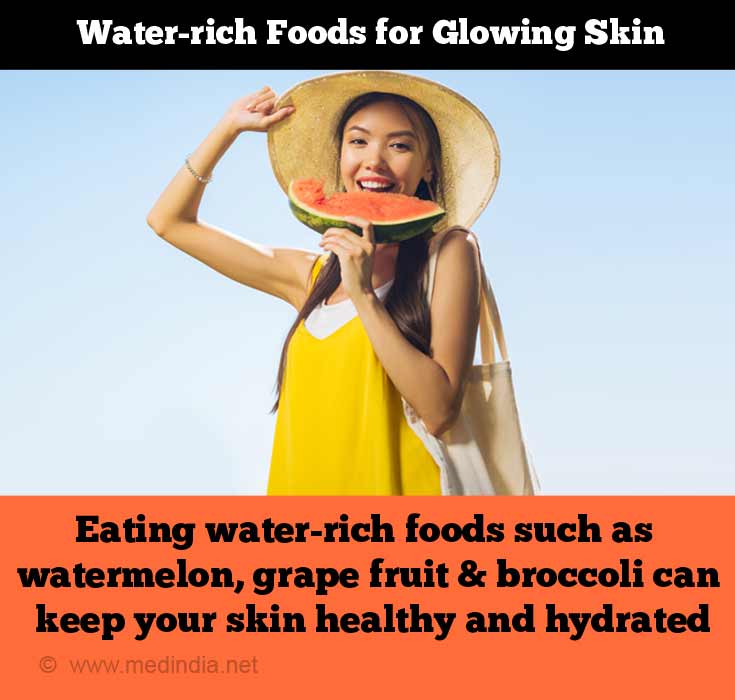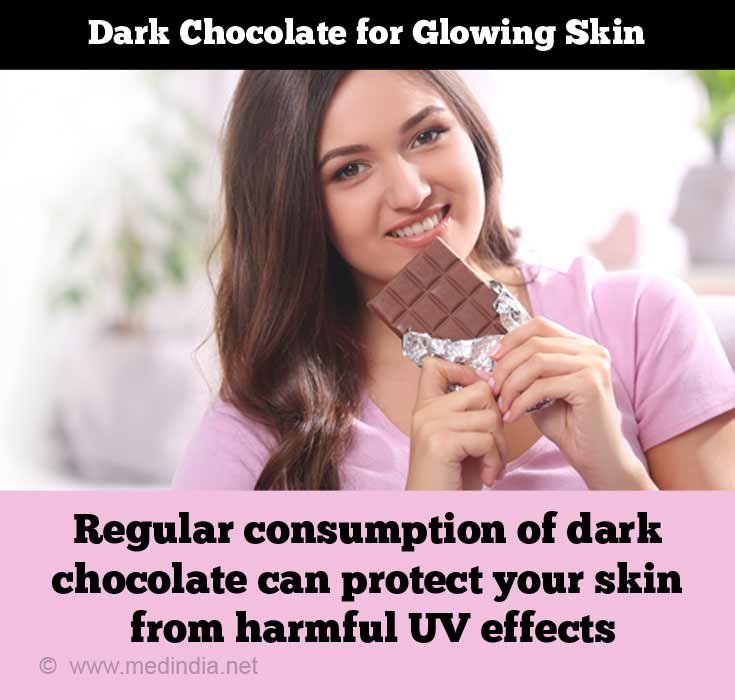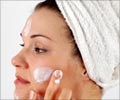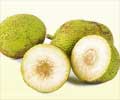- Eating chocolate can significantly protect the skin from UV light - (http://www.ncbi.nlm.nih.gov/pubmed/19735513)
- Cocoa and chocolate in human health and disease - (http://www.ncbi.nlm.nih.gov/pubmed/21470061)
About
Most of us want a radiant glowing blemish free skin but the question is how to get one? The answer is - healthy diet, regular physical exercise, and emotional well-being. Here we tell you about the top face-friendly foods that would help you achieve the skin you always wanted.

Guava- This inexpensive but abundant fruit has astringent properties that tones and firms your skin and helps you achieve a younger and healthier skin. Guava is also rich in vitamin E and antioxidants that fight free radicals, smooth fine lines, minimize pores, and plump and strengthen the skin. Antioxidants in guava target the damage caused by free radicals and also help prevent future damage to our skin cells, say the dermatologists.
Spinach and other leafy vegetables- Spinach, kale, collard greens, turnip greens, lettuce and other greens are the healthiest foods rich in
Water-rich foods such as watermelon, grapefruit and broccoli- Hydration is essential for healthy glowing face and skin. Raw foods like lettuce, watermelon, broccoli, and grapefruit, contain a lot of water, which our body uses to keep us hydrated and healthy. ‘If the outermost layer of the epidermis doesn't contain enough water, skin will lose elasticity and feel rough,’ says Lawrence Gibson, Mayo Clinic dermatologist. Additionally, these foods are rich in anti-oxidants and fiber, so required for a glowing healthy skin.

Beans, peas, and lentils- Beans, peas, and pulses are very good source of dietary B vitamins such as niacin, thiamin, panthothenic acid and pyridoxine, which are necessary for normal functioning of the skin. Vitamin B7, also known as biotin, is a very important vitamin for skin health because it forms the basis of skin and hair cells. Similarly, vitamin B3 or niacin helps the skin to retain moisture.
Green tea- Green tea as a healthy drink has been known since ages. The polyphenols (antioxidants) present in the green tea helps eliminate free radicals that can cause cancer and skin inflammation. Dr. Stephen Hsu, a cell biologist in the Medical College of Georgia Department of Oral Biology, while studying the green tea polyphenol, EGCG, found that it reactivated dying skin cells. ‘If we can energize dying skin cells, we can probably improve the skin condition,’ he said.
Dark chocolate- Cocoa beans fresh from the tree are exceptionally rich in flavanols. However, antioxidant capacity is greatly reduced due to manufacturing processes in the chocolates that we eat. Despite the loss, ‘regular consumption of a chocolate rich in flavanols (dark chocolate) confers significant photo protection and can thus be effective at protecting human skin from harmful UV effects,’ revealed a study published in Journal of Cosmetic Dermatology. Note that other chocolates don’t have such effect. Yale researchers agree – although there is a risk of weight gain with over-consumption of chocolate, ‘research to date suggests that the benefits of moderate cocoa or dark chocolate consumption likely outweigh the risks’, they say.

Extra virgin olive oil- If there is insufficient fat in your diet, you will notice your skin become dry and flaky. Any oil would help your skin become more elastic but knowing the perils of consuming saturated fats, extra virgin olive oil is the best choice since the main fat here is monounsaturated fatty acids (MUFA) that will protect not only your skin but help reduce risk of heart disease and diabetes.
Salmon and other fatty fish- Salmon and other such fatty fish contain n-3 PUFA (polyunsaturated fatty acids) that are essential for skin health and elasticity. These fatty acids prevent water loss from the epidermis thus preventing the skin from drying. They are also known to protect against the damaging effects of sunlight (photoaging, skin wrinkling, skin drying and hypersensitivity) by suppressing the accumulation of prostaglandin (molecules causing inflammation).
Vitamin K rich foods- The glow on your face might go waste if you have dark circles or puffiness under your eyes. There is scientific evidence that vitamin K helps reverse dark circles under the eyes. Amparo Salvador and Alberto Chisvert, analytical chemists from the University of Valencia, Spain, in their book, "Analysis of cosmetic products," explain how vitamin K helps minimize the appearance of dark circles. Apart from leafy greens, you can get dietary vitamin K from foods such as eggs, liver, milk, cheese, brown rice, pickled cucumber, cabbage, prunes, mulberry, blueberry, raspberry, pear and even dry roasted cashew.

















